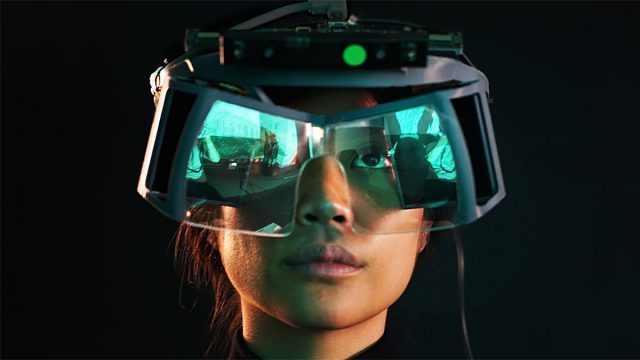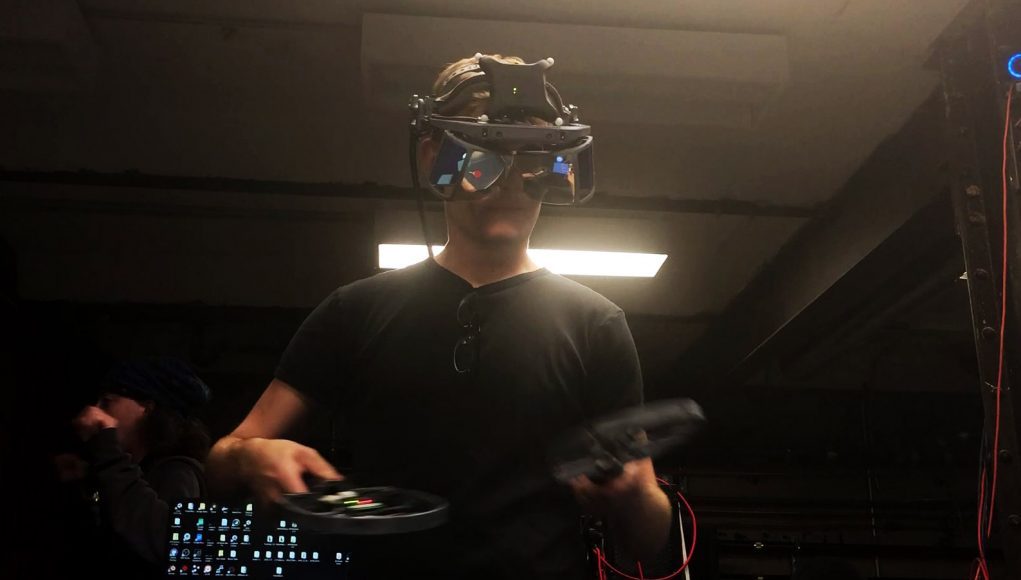Back in April Leap Motion first revealed North Star, a prototype AR headset that’s designed to replicate the features of a future high-end AR headset, as a platform for experimentation. Today the company revealed the first extended look of a demo shot through the headset, offering a glimpse of its capabilities.
Leap Motion is best known for its markerless hand-tracking technology, but in the last few quarters the company has been increasingly showing of its design chops in both software and now hardware. Project North Star, which was recently open-sourced, cares not about form-factor; the headset was built purely to push the limitations of the end AR experience, and thus to serve as an experimental platform for what might be achieved with features that will hopefully one day fit into a compact and affordable headset.

The company claims North Star has “best-in-class field-of-view, refresh rate, and resolution,” and today revealed a new demo designed to show it off, including the company’s hand-tracking tech. Below you’ll see through-the-headset footage of Leap Motion’s table tennis demo on North Star, which has the player facing off against an AI opponent. In the video, the table and the player’s paddle are real, while the ball and the opponent’s paddle are virtual.
The demo appears to use a professional motion capture system for tracking the headset and paddle, while the user’s free hand is tracked with a Leap Motion sensor on the headset. The user uses a pinch gesture to spawn a ball for each volley.
Leap Motion has no plans to manufacture the North Star themselves, but believes the device could be produced at $100 per headset at scale, which could make for a excellent AR development kit.
Disclosure: Leap Motion’s Barrett Fox and Martin Schubert have recently published a series of guest articles on Road to VR highlighting their experiments in AR/VR interface design. The latest piece is here: Validating an Experimental Shortcut Interface with Flaming Arrows & Paper Planes







